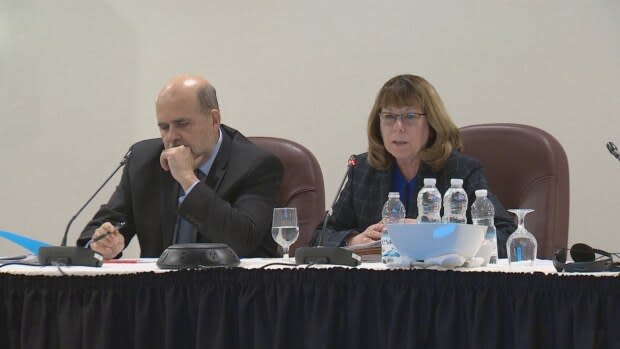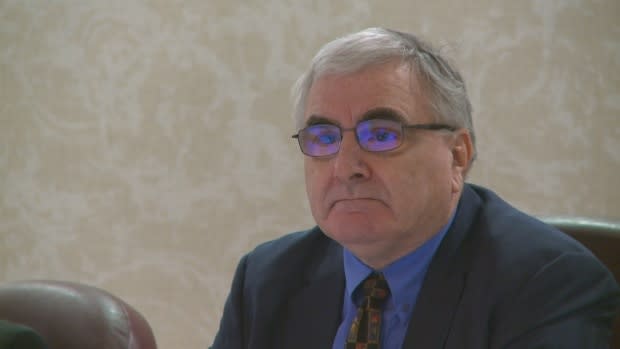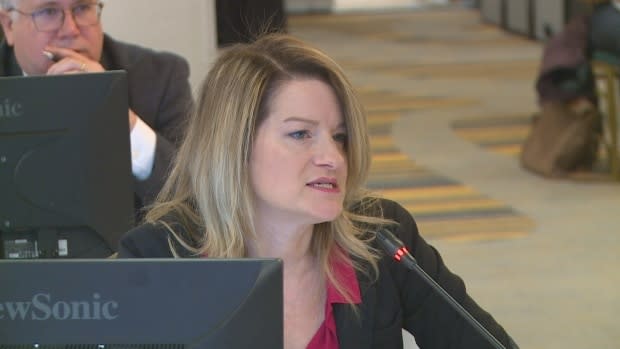Smart meter critics change tune on NB Power's new business case
NB Power's $92-million plan to buy and deploy smart meters in New Brunswick got a late endorsement Monday from a pair of consultants unconnected to the utility who had lobbed early criticisms at the project — a change in tone not lost on at least one Energy and Utilities Board member who will soon be deciding its fate.
"Both of you there just gave some compliments to NB Power on their business case. So you think this is a well-prepared business case?" asked EUB member Michael Costello during the testimony of Philip Diodomenico and Kathleen Kelly, consultants with Daymark Energy Advisors Inc. of Worcester, Mass.
Diodomenico and Kelly were hired by public intervener Heather Black to independently review NB Power's smart meter plan and told Costello despite some shortcomings it is a much better proposal than they have dealt with elsewhere.
"Generally, the business case is a good business case," said Diodomenico.

"It's made good use of outside consultants and expertise. It's taken a conservative approach in a number of areas, not everywhere, but in a number of areas. Yeah, so it's a good business case."
Kelly said although NB Power might be underestimating expenses and overestimating benefits of its smart meter plan by several millions of dollars, it still looks to be a solid investment.
"We've tried to take some of the assumptions and expand them and make them more conservative to make ourselves more comfortable with it," said Kelly.
"We've reduced the benefit cost ratio, but we haven't seen it go to one [break even] or lower."

Black recommended against the adoption of NB Power's smart meter plan during the utility's first application in 2018 and, although she has expressed no personal opinion on the matter so far this time, her experts gave the utility's case an important boost at a critical time.
The two said they would not recommend against the project moving forward if NB Power expands on a risk assessment of things that could go wrong and how they might be fixed and develops acceptable ways to measure whether the meters are accomplishing predetermined goals.

Diodomenico and Kelly were the final two witnesses to be called during the hearing, which has lasted six days and moves to final arguments on Wednesday.
Extent of financial benefits questioned
NB Power has presented evidence suggesting its acquisition of 360,000 smart meters will provide 16 financial benefits that together will exceed the projected cost of the project by $31.1 million over 15 years.
Although Diodomenico and Kelly said that net benefit number is probably too high, it's likely not zero, something a second independent expert was less certain of.
Alice Napoleon, a senior associate with Synapse Energy Economics of Cambridge, Mass., also testified Monday.

Synapse was hired to independently evaluate the smart meter plan as well, but by the Energy and Utilities Board itself.
Napoleon told the board it is unclear from her analysis — because of vagueness in NB Power's numbers — whether the project will be a financial benefit or liability in the long run.
"We find that NB Power has presented a proposal that, under plausible conditions, would result in benefits to ratepayers," said Napoleon in her opening statement.
"Under alternative but still plausible conditions, the proposed AMI (advanced metering infrastructure) plan might not provide net benefits to customers."
Intervener raises health concerns
Also testifying Monday was McGill University lecturer Paul Heroux, who was called by intervener Roger Richard, a staunch opponent of smart meters.
Heroux said his research shows that even low levels of radiation, like from radio frequencies that will be constantly emitted by smart meters, pose a health hazard to humans.
"We have been for a long time influenced by this radiation unknowingly," said Heroux.
Earlier in the hearing, Dr. Michele Plant, a witness for NB Power, testified there was "no carcinogenic risk" from radio waves or frequencies at "an exposure level thousands of times higher than those measured near a smart meter."
In the hearing two years ago, the EUB ruled it could find no credible evidence that smart meters posed any health risks.


